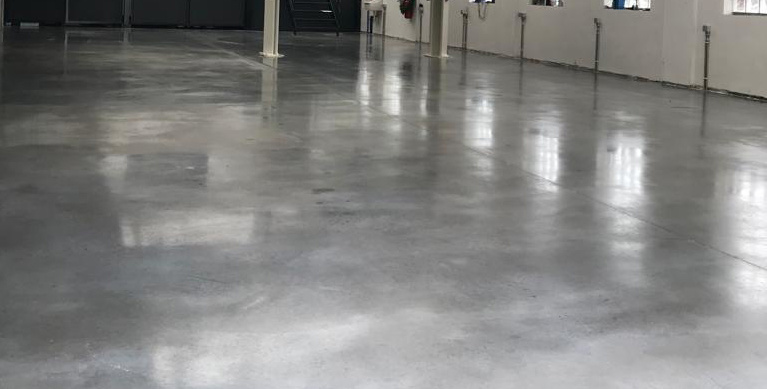Your cart is currently empty!
HOW DO SODIUM HARDENERS WORK?

Sodium hardeners (also called sodium silicates) are often used to treat concrete, both indoors and outdoors. In the last 10 years, however, there have been more and more products on the market, which often have their own emphasis in order to market and sell the product in the best possible way. This makes it increasingly difficult to compare products and to make the right product choice. In this article, we explain how sodium hardeners work in order to optimally inform buyers in their purchasing decisions.
Sodium hardeners penetrate the pores of the concrete and bind with the free lime to form a calcium silicate hydrate (CSH). Once the bond is formed, nothing of the sodium hardener remains in the concrete. All that remains is the newly hardened calcium silicate hydrate. This structure narrows the pores of the concrete, making the top layer denser and harder.
WHAT ARE THE DIFFERENCES BETWEEN VARIOUS SODIUM HARDENERS?
Treating concrete with a sodium hardener provides a Amount benefits :
- It reduces dust formation and wear of the top layer;
- Because the pores are reduced, less water and moisture are released from the concrete;
- Sodium hardeners are permanent. The chemical reaction that forms a calcium silicate hydrate cannot be reversed;
WHAT ARE THE DIFFERENCES BETWEEN VARIOUS SODIUM HARDENERS?
All sodium hardeners work in the same way. Through a chemical reaction, they all form an identical chemical structure (calcium silicate hydrate) that cannot be distinguished in any way. But why then are there price differences between the different products?
Although the action is identical, the form and application of the product may differ. Some products are concentrated, others are ready-to-use. Concentrated sodium hardeners must first be mixed with water; ready-to-use products are already mixed with distilled water and can be used immediately.
In terms of the end result, both types are completely identical, but depending on the availability of distilled water and the possibility of mixing on site, transport costs, preference, etc., the contractor may have a preference for a particular product.
IS A SODIUM HARDENER WITH A PRODUCT GUARANTEE BETTER THAN ONE WITHOUT?
Absolutely not. The chemical reaction of any sodium hardener is permanent. The result of the chemical reaction depends on the following:
- The amount of free lime and calcium with which the silicate binds
- The porosity of the concrete will determine the depth of penetration of the hardener. The more porous the concrete, the deeper the hardener will penetrate and the more it will spread in the concrete. The more porous the concrete, the more layers will be required to compact the pores.
WHAT IS THE DIFFERENCE BETWEEN HARDENING AND IMPREGNATION?
The term impregnation is used for different treatments of concrete.
Impregnation is generally understood to mean making concrete water- and oil-repellent. There are many different products on the market for this purpose. In contrast to hardeners, with Sealers there are large differences in the composition, effect, efficiency and quality of the products.
Whereas a hardener will constrict the pores of concrete to make the top layer more resistant, an impregnating agent will fill and saturate the pores, so that liquids are less likely to penetrate the concrete, thus protecting it from stains and the negative effects of water and moisture.
Sometimes the use of a sodium hardener/silicate is also called impregnation. This is usually done to make the difference between a hardener and a coating. Hardeners and Sealers both work into the concrete, whereas a coating forms a new layer on top of the concrete.
WHAT DOES A SODIUM HARDENER NOT DO?
Sodium hardeners have distinct effects, but there are also a Amount things that sodium sillicates cannot possibly obtain:
- A sodium hardener cannot create a pearl effect from water or other liquids. For that, a water- or oil-repellent impregnation agent is required
- Sodium hardeners cannot prevent the penetration of oil, gas or chemical products into the concrete
- Sodium hardeners do not prevent freeze/thaw or salt damage, because they do not reduce or prevent the water absorption of concrete.
 How can we help?
How can we help?